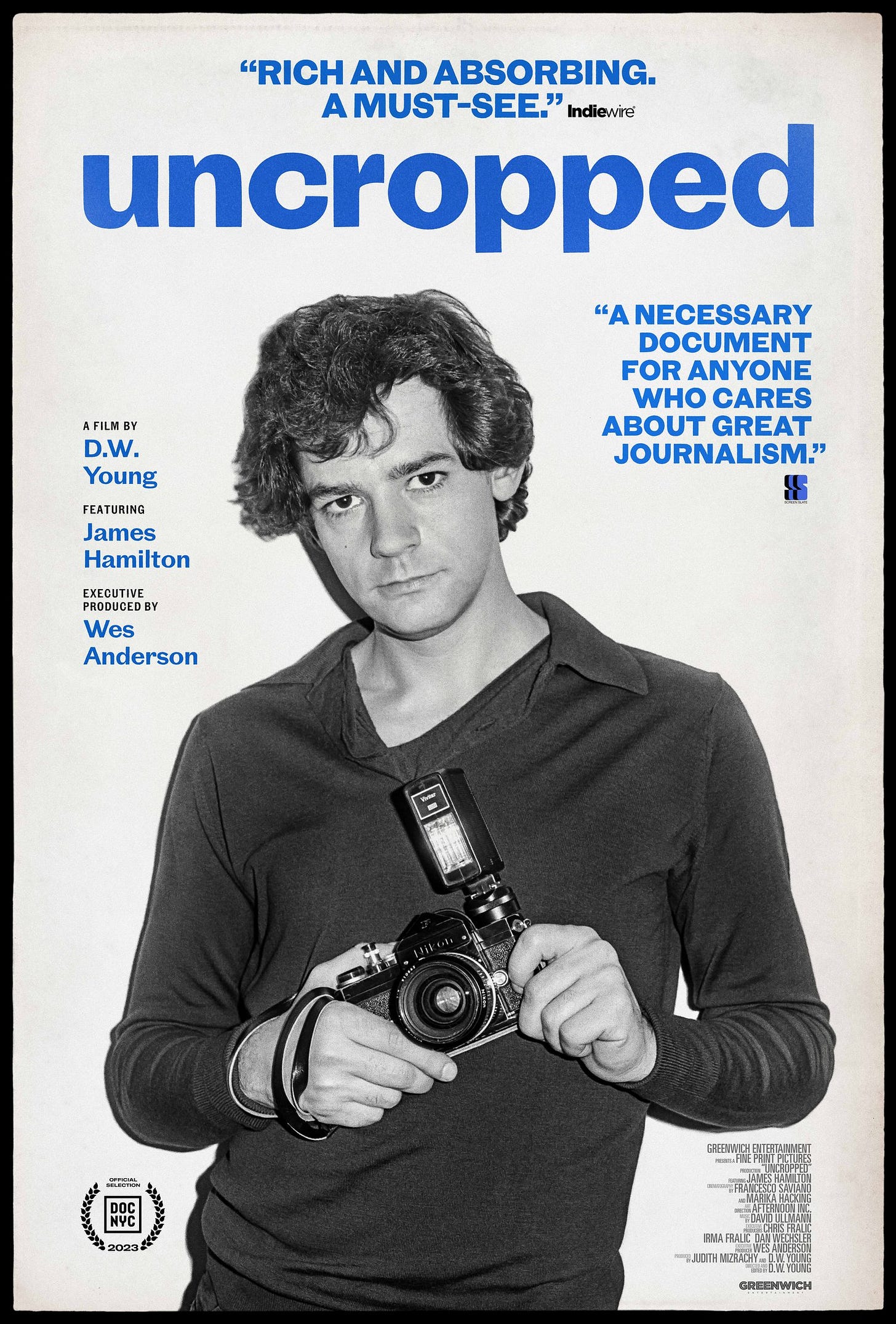Do you shoot film?
Reflecting on the magic of analog photography

I love thinking about photography.
Why do people practice it? What does it mean to us, and why does it matter? I always say photography is good for you, and I believe that more and more every day. At a high level, photography heightens our awareness of the world. It helps us see and understand the things that surround us. And it can connect us with each other.
We screened GRAIN: Analog Renaissance in Madison last night — the inaugural film in the documentary series Jim Kreul and I are developing at the Arts + Literature Laboratory this fall. I loved this movie and want more folks to see it. A small group of photographers, primarily analog imagemakers, came out to see the show, and we had a wide-ranging discussion following the movie. It was a lot of fun, and I’m glad everyone enjoyed themselves. I woke up thinking about it this morning, which is always a good sign. If you haven’t seen this movie yet, please do. You won’t regret it.
The film's crux is that analog photography is a special art and a particularly unique imagemaking experience. But the movie is about much more than this. I found myself getting emotional at times because the artists in GRAIN were so sincere about the medium and their work. I recognized a few faces — Daniel Arnold, Joni Sternbach, and Geoffrey Berliner, among others — and their passion was palpable.
I’ve previously written about darkroom photography, and the film reminded me that the photographers who shoot film keep a powerful tradition alive. These days, we can’t take that for granted. Artificial intelligence, computational photography, and voice-operated devices push us to embrace a way of life that’s easier, more “convenient,” and less hands-on. I loved hearing the artists in the film share their philosophies about analog photography and what it means to them. It’s much more than mere art or craft. These people are genuinely moved by working with film. It’s a soulful experience and one that has changed their lives.
I’m in awe of photographers. Their cameras transform the world into something else, something meaningful and potent. Photographers make beauty out of the ordinariness of everyday life. I find that magical and incredibly inspiring. I was buzzing on my walk home last night because spending time in the company of imagemakers always gives me a boost. We’re building a community here at ArtLitLab, and it feels good. Finding your photo people is essential. I know you can relate.
I wonder if you might tell me about your work. Do you shoot film? What does it mean to you? Why does it still matter? Thanks in advance for sharing your thoughts with me.
Uncropped film screening on November 14.
Save the date: We’re screening D. W. Young’s documentary Uncropped at ArtLitLab on Thursday, November 14. I hope you can join us.
It’s a sunny day here in Madison today. I hope it’s gorgeous wherever you are. Have a great weekend!





Yes, I still shoot film.
I do not do it because I think it is superior, or that I think an image shot on film is automatically any better than a digital image. I shoot it because it has a slower process baked in. With my Fuji 680, the shooting is slow and cumbersomd, and the film is expensive at 10 shots per roll. This deliberate approach to making my images helps me to understand the process of making an image. I've been at it for over 55 years, and I may be getting the hang of it about now.
I love the patina, the grain, the edge sharpness, and the built-in softness of film imagery. I continue to shoot images with film because of the connection to a medium that is not automatic, ehhanced, or easily reproduced. I also shoot tin type, Palladium, and directly on to paper with my Deardorff 8x10. These processes slow the work, and create one-of-a-kind work that feels differentl than the easily cloned digital image.
I never stopped shooting film since I started around 2001 when I was 12 or so - and to show for it I have an archive of my friends and family growing up. Memories locked away in negatives that haven't been lost to a bad hard drive or compressed to death on a facebook photo album. To be able to revisit my negatives, to enlarge them, rescan them, to hold them as this indelicate physical object means a lot. Digital can be beautiful and is super useful - but it’s not for the moments that matter to me.